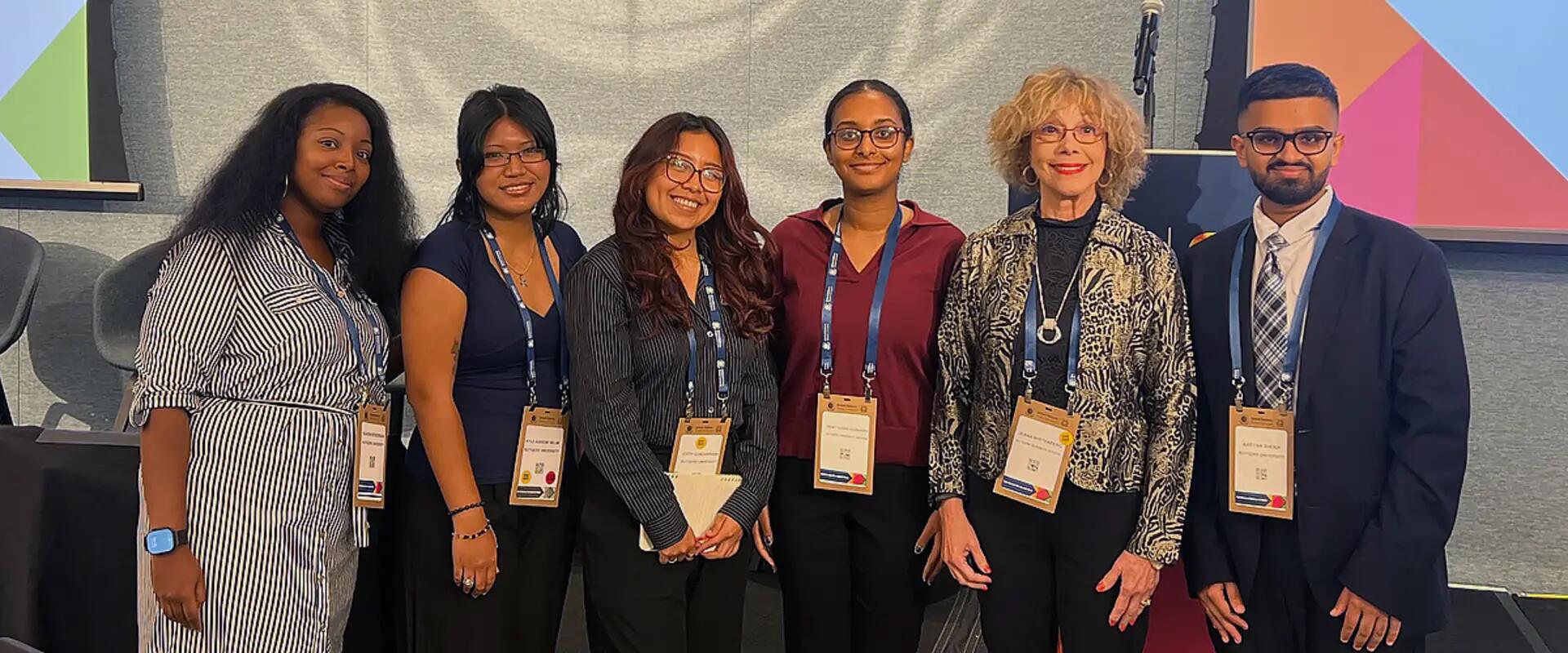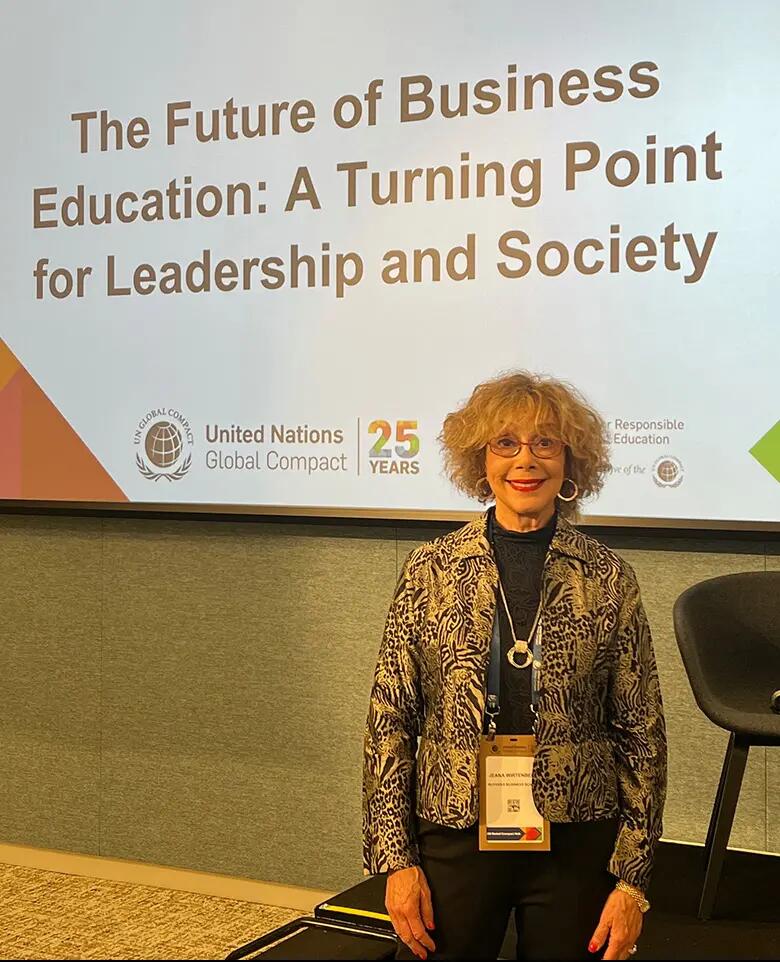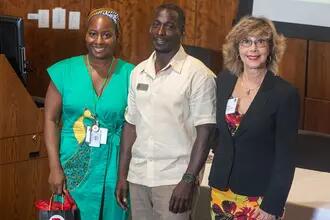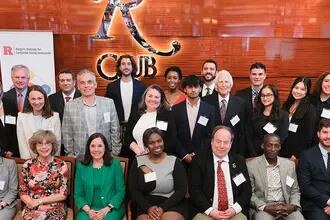
Rutgers Business School students participated in the UN Global Compact PRME Hub event on September 26, from left to right: Ravon Roberson, Kyle Adriene Selim, Edith Guadarrama, Sewit Gebre-Egziabher, Professor Jeana Wirtenberg, and Aaryan Shekh.
The Future of Business Education: A turning point for leadership and society toward a more sustainable world
Rutgers Business Insight by Jeana Wirtenberg, Ph.D., Executive Director, Rutgers Institute for Corporate Social Innovation
Business education is at a turning point. The way we teach today will shape leadership and society for generations to come.
"The dream of a more just, sustainable, and prosperous world is already being advanced by young people. Together, we can make that dream a reality," said United Nations Secretary-General António Guterres.
This was the core message of the UN Global Compact PRME Hub event on “The Future of Business Education: A Turning Point for Leadership and Society” on September 26, where I had the privilege of participating alongside six Rutgers Business School students.
Principles for Responsible Management Education (PRME) is a United Nations-supported initiative founded in 2007 that aims to raise the profile of sustainability in the classroom.
The event came just as Rutgers Business School submitted our 2025 Sharing Information on Progress (SIP) Report on September 22. This report underscores RBS’s commitment to maximizing social impact—by fostering inclusive excellence, opening minds to diverse perspectives, and preparing future leaders to drive meaningful, positive change. It highlights key programs across the RBS curriculum and community that advance the public good and create pathways for upward social mobility.
At the Rutgers Institute for Corporate Social Innovation (RICSI), we are committed to advancing these calls for business education’s transformation through our role as a convener, educator, and researcher. With the passion of our students, the commitment of our faculty, and the partnerships we are building worldwide, we are shaping a future of business education that is inclusive, sustainable, and transformative.
Here were my key takeaways from the UN PRME event:
- This is a decisive decade for people and the planet. Business education must rise to the challenges of climate change, eroding trust in institutions, and growing inequality. The transformation begins with what we prioritize in business and in our classrooms.
- Responsible business as the new norm. Companies are increasingly embedding environmental and social responsibility into their DNA. Business education must set this standard—shifting from extraction to inclusion, sustainability, and equity.
- Ethics and character at the core. Leadership requires courage, accountability, and ethical decision-making.
- Engaged students. From PRME student clubs to experiential learning, we must empower students as co-creators of knowledge, not passive recipients.
- Real-world connection. Pedagogy must be balanced with hands-on engagement in solving today’s urgent challenges.
- AI as an enabler. Artificial intelligence can accelerate solutions if used wisely. At RBS, we are beginning to explore how AI can support responsible business and prepare students for the future of work.

We also heard from PRME student leaders from around the world who emphasized the urgency of rethinking business education. Some interesting takeaways from them included:
- Move students from observers to co-creators—with a genuine voice in decision-making.
- Integrate the UN Sustainable Development Goals (SDGs) into every discipline.
- Keep education practical and relevant to the realities of the 21st century, including climate change.
- Strengthen resilience and intergenerational responsibility, always keeping future generations in mind.
- View youth not as beneficiaries but as agents of change—work with them, not just for them.
Their voices remind us that the hope and energy of youth are already creating global connections and solutions.
Additional Resources
UN PRME also announced a new resource for educators: Embedding Responsible Management Education: Tools for Faculty, Staff, and Administrators. This guide offers practical tools for integrating responsibility and sustainability across higher education.
Press: For all media inquiries see our Media Kit


